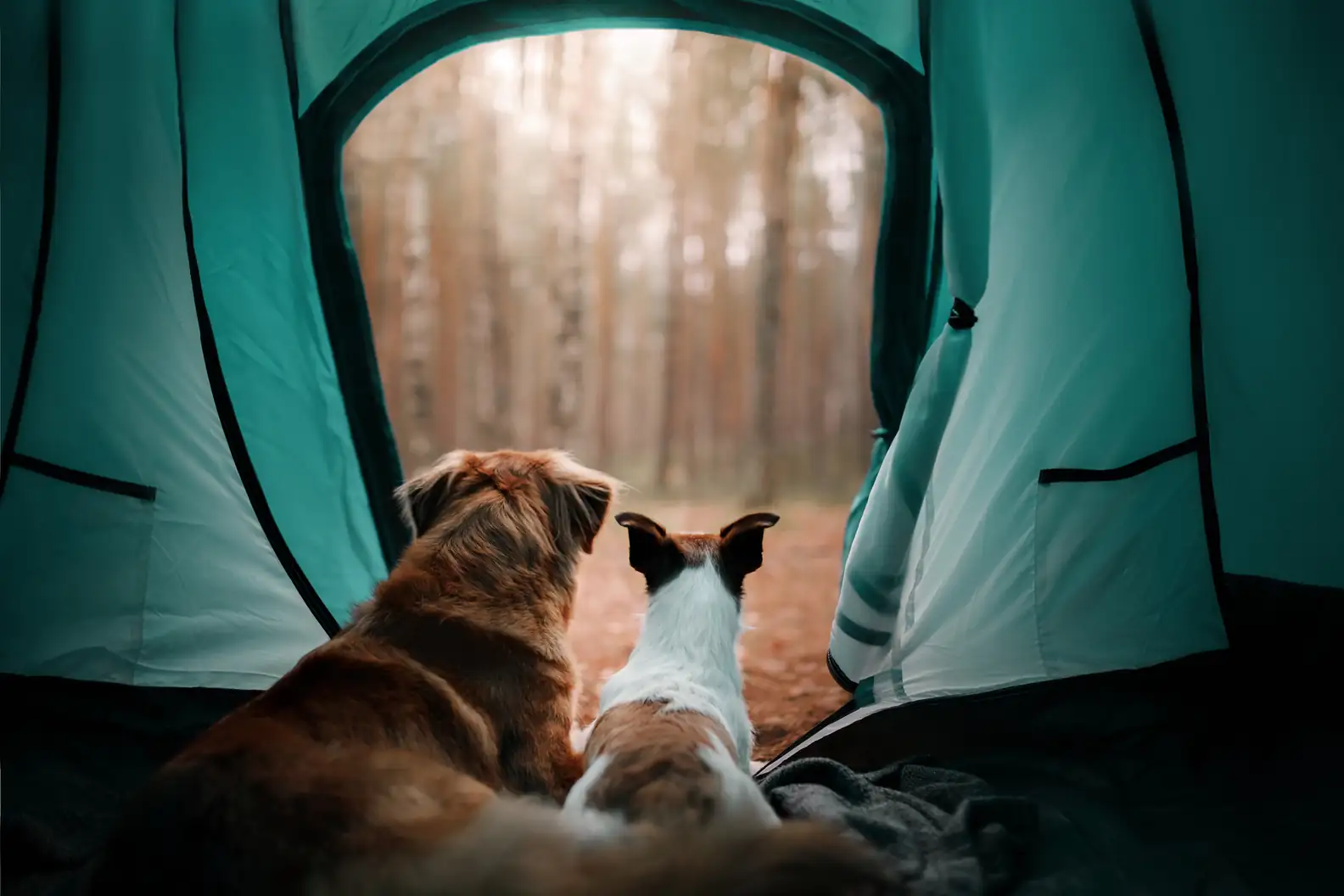How to stay safe, comfortable and have fun ⛺🐕
Camping can be one of the most thrilling and rewarding experiences for both you and your dog. Dogs thrive on being outdoors, exploring new scents, and enjoying quality time with their humans—and camping magnifies all these favorite activities.
If you’re new to camping with your dog, the preparation might seem a bit overwhelming. However, with a bit of planning and a well-thought-out packing list, you can ensure a carefree and enjoyable adventure. Here are some top tips to help you and your dog have a safe and memorable trip.
Acclimate Your Pup to Camping Gear Before You Hit the Road
Since your pup is accustomed to sleeping in a house, transitioning to a tent can be quite an adjustment.
“If your dog’s never been in a tent before, be prepared to help them get comfortable with it before your camping trip,” advised Britt Crow-Miller, a dog mom from Massachusetts who has extensive camping experience with her dogs.
While it may seem a bit unusual, consider setting up your tent in your living room or backyard a few weeks before your trip. Allow your dog to explore the tent and get accustomed to its appearance and texture, so they aren’t startled by any new sensations on the day of your adventure.
Make sure your plans are dog-friendly
Not all campsites or trails allow dogs or are safe for them, and some have specific rules about keeping dogs on leashes at all times. To avoid any surprises, do thorough research beforehand to ensure your destination is dog-friendly.
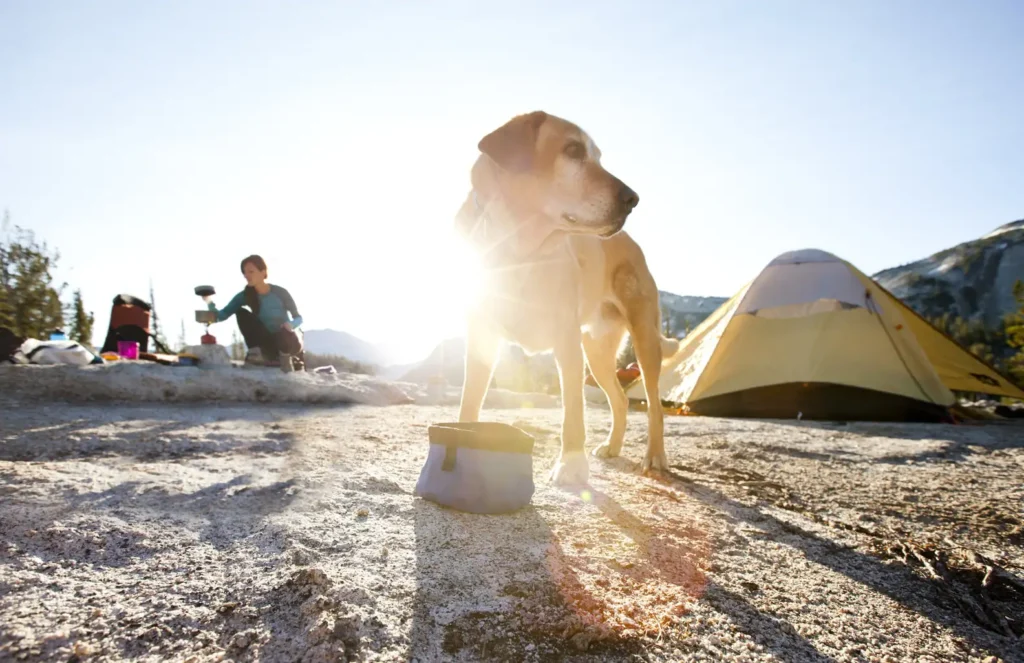
If your dog isn’t fond of crowds, it’s wise to steer clear of heavily packed campsites, which often means avoiding trips during holiday weekends.
The more you research your destination and its conditions for that time of year, the better prepared you’ll be.
Be aware of wild animals
Before heading out, research the types of wildlife you might encounter in the area and how they might interact with dogs.
“If you’re heading to a region with venomous snakes, make sure your dog is trained to handle such situations. Understand the local wildlife and have a plan in place,” Crow-Miller advised.

It’s also crucial to avoid inadvertently attracting wildlife to your campsite.
“Keep your dog’s food and treats securely stored when they’re not being eaten to ensure that local wildlife isn’t drawn to your campsite,” advised Dr. Simon, a veterinary surgeon and consultant for Five Barks.
Help your pup avoid getting lost
Camping increases the chances of dogs getting lost, whether they’re chasing after wildlife or getting spooked by something. To minimize this risk, try to keep your dog leashed as much as possible.
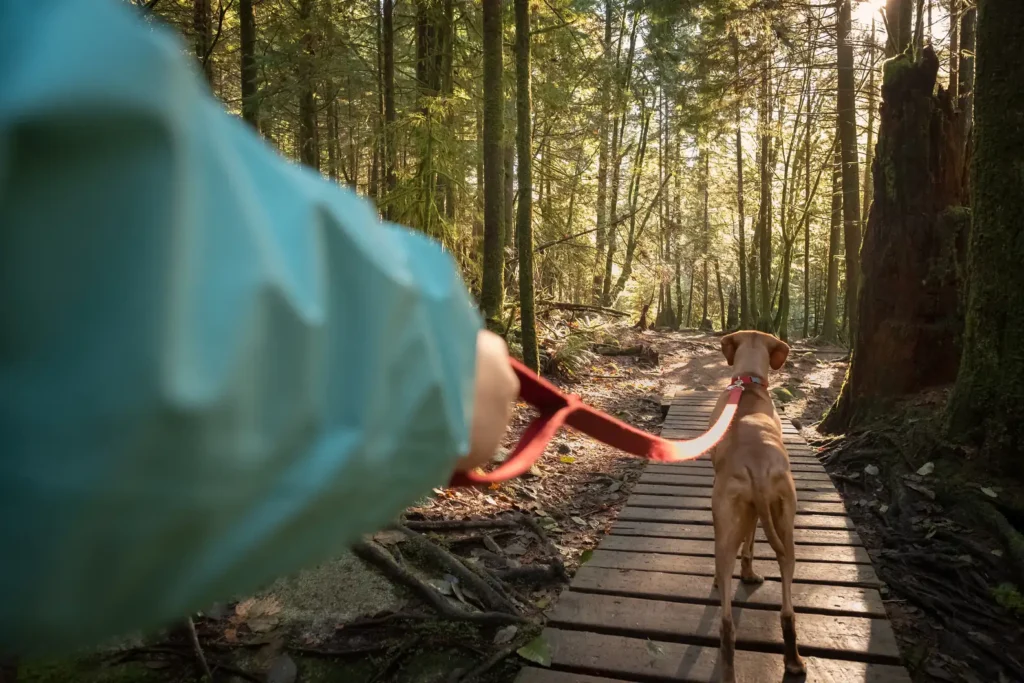
“Bring a lead that you can stake into the ground at the campsite,” Crow-Miller suggested. “This allows your dog a bit more freedom within the campground.”
Ensuring your dog is microchipped is always a good practice, but it’s especially crucial when camping.
“Make sure your pet’s microchip details are up to date,” advised Dr. Wigfall, a veterinarian with SpiritDog Training. “If your dog gets lost, it will be much easier to reunite you.”
Keep your dog healthy and happy
If you’re camping in an area with ticks, don’t forget to take tick prevention measures. Conduct a thorough tick check each night to prevent any unwanted guests from coming into the tent with your dog.
While exploring around your campsite, you might be tempted to let your dog drink from natural water sources. However, vets recommend against it, as the water could contain harmful bacteria or parasites that could make your dog sick.
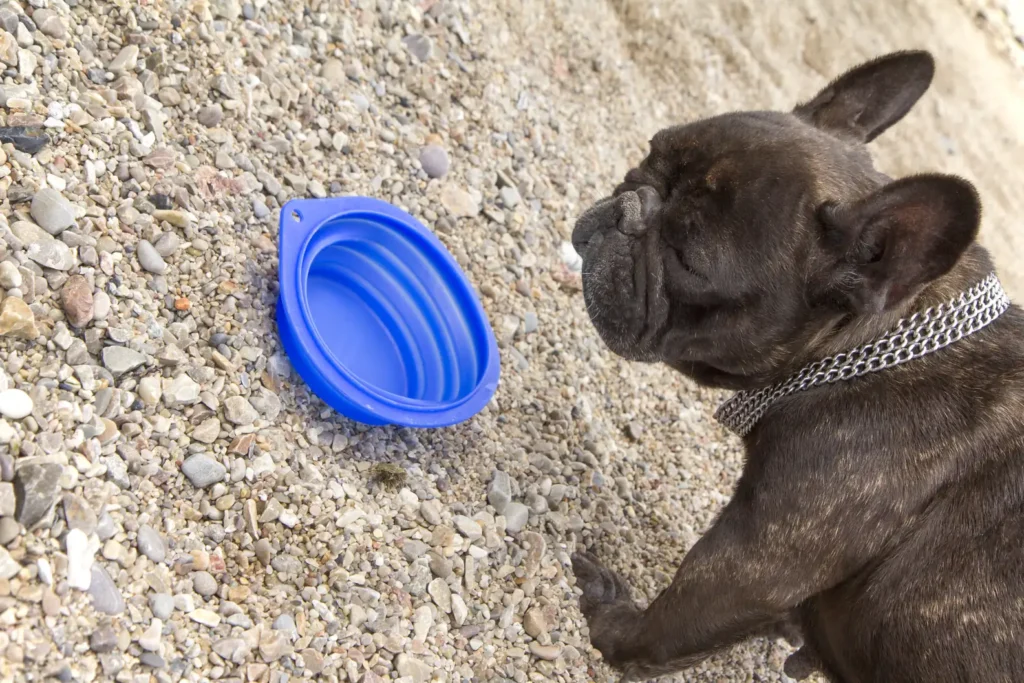
“Bring fresh water for your pup to drink, and do not allow him to drink from natural water sources like puddles, ponds, streams, and lakes,” advised Dr. Coppola, a certified dog and cat behaviorist at Senior Tail Waggers.
It’s also wise to include a special dog first aid kit in your packing list and note the nearest emergency vet location. Even though it’s unlikely your dog will get injured, having this information will give you peace of mind.
Stock up on supplies
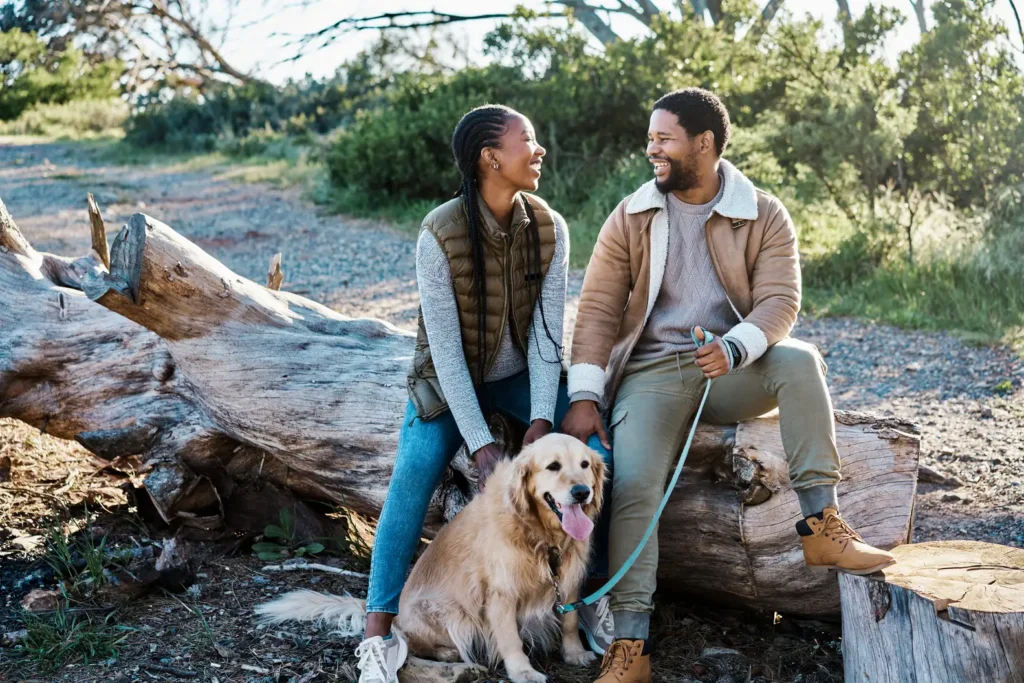
While you likely have camping supplies and dog food on your packing list, there are a few additional items that can be especially useful. For instance, consider bringing a towel to clean off your dog’s paws at night.
“If your dog has been hiking or playing in the water, you’ll want to wipe their paws to prevent dirt from being tracked into your sleeping area,” Crow-Miller advised.
Another handy item to consider is a collar with a light. This will help your dog navigate the campsite at night and make them more visible in the dark.
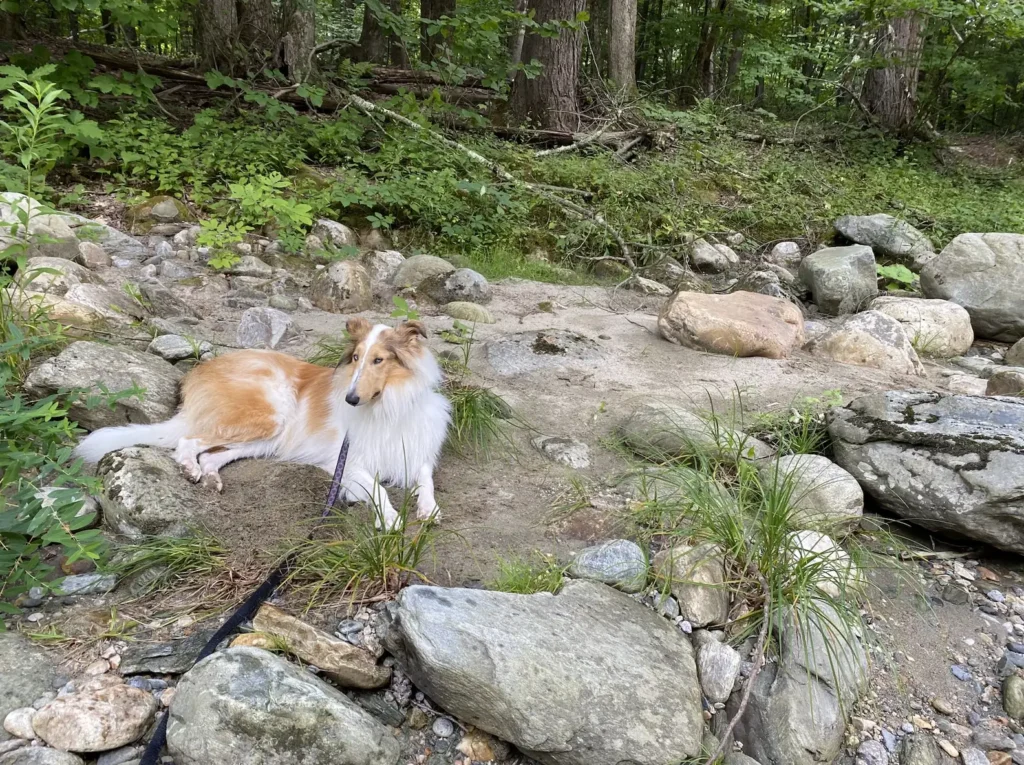
Be in the moment
It’s not every day you get to escape the hustle and bustle of daily life and enjoy nature with your dog. So, while you’re there, take in the experience and capture plenty of pictures. Your dog will simply be thrilled to be spending time with you. Before you know it, you’ll be planning your next adventure.
“They’re happy to be included,” Crow-Miller said.
